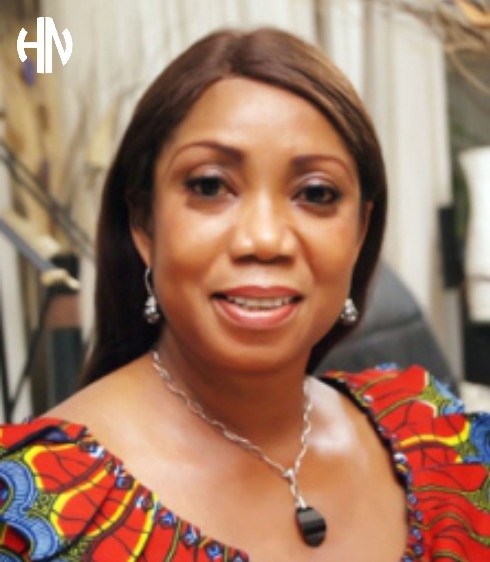Why Washington May Be Uneasy — and Why Nigeria Must Reform Its Military to Regain Trust and Strength
Executive Summary

Nigeria and the United States — two nations historically bound by shared democratic values and security cooperation — now find themselves navigating a period of mutual unease.
Washington is frustrated by Abuja’s growing ties with China and Russia, Nigeria’s BRICS alignment, its currency-swap and dedollarisation policies, and resistance to certain U.S. security overtures. Nigeria, on the other hand, is wary of what it perceives as American hypocrisy and coercion masked under the banner of “human rights” or “religious freedom.”
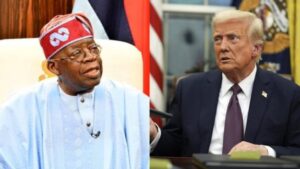
Yet both nations need each other. The U.S. requires stable partners and access to strategic minerals in an increasingly competitive world. Nigeria needs credible allies, capital, and technology to modernise its economy and secure its territory. The only viable path forward lies in diplomatic re-engagement, military reform, and mutual respect.
A Partnership Under Strain
For decades, Nigeria served as the linchpin of U.S. strategy in sub-Saharan Africa. It received extensive military aid and training, especially in the fight against Boko Haram and ISIS-West Africa. But poor accountability and corruption undermined results.
The United States currently maintains about US $590 million in active military-sales cases with Nigeria, and has provided billions in security assistance over two decades. Yet insecurity persists — from the northeast’s insurgency to violent crime across the Middle Belt.
A series of U.S. reviews and think-tank analyses cite procurement fraud, ghost soldiers, and weak oversight as major causes of this failure.

Compounding tensions, the Buhari administration’s reintegration of “rehabilitated” Boko Haram fighters, some allegedly absorbed into the security forces, eroded public trust. Critics argue that this blurred the line between national defence and compromise — weakening discipline and creating moral confusion in the ranks.
Economic and Strategic Realities
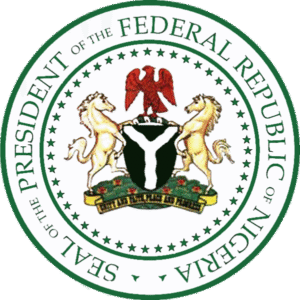
Nigeria’s 37 – 38 billion barrels of crude-oil reserves, vast gas deposits, and emerging lithium and rare-earth resources have made it an attractive partner for both China and Russia.
In 2024–2025, Chinese firms invested over US $1.3 billion in Nigeria’s lithium processing industry and renewed a RMB 15 billion / ₦720 billion currency-swap agreement. These moves, coupled with the decision to require foreign airlines to sell tickets in Naira, symbolise Nigeria’s deliberate shift away from dollar dependence.
Meanwhile, Nigeria’s acceptance as a BRICS partner country marks a geopolitical pivot that unsettles Washington.
The U.S., locked in a global trade and influence war with China, sees these developments as diminishing its leverage in Africa’s largest economy — and potentially pushing Nigeria into the rival camp.
Why the U.S. Is Displeased
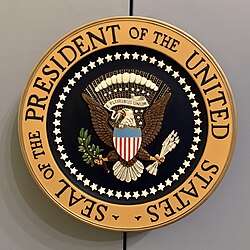
Reduced Leverage: BRICS membership and yuan-based trade weaken America’s traditional financial influence.
Security Frustrations: Persistent insecurity despite years of U.S. aid has raised questions about corruption and competence within Nigeria’s military.

Policy Independence: Nigeria’s refusal to host a U.S. base and its vote supporting Palestine at the UN indicate a new assertiveness.
Resource Competition: As the U.S. Strategic Petroleum Reserve declines, Nigeria’s massive reserves appear both attractive and frustratingly out of reach.
Accountability Concerns: Allegations of diverted funds, arms leaks to insurgents, and weak oversight have led Washington to suspend or threaten the suspension of further aid.
The Way Forward: Nigeria’s Reform Imperative
Conduct a Comprehensive Military Audit
The Nigerian Army must undergo an independent forensic audit, focusing on:
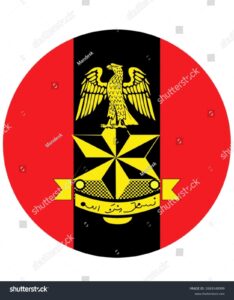
All defence procurement since 2015.
Recruitment records to identify unvetted or radicalised entrants.
Weapons inventory to trace diversion and leakage.
This audit should be overseen jointly by the Auditor-General, National Assembly, and credible civil-society monitors, with findings made public. Transparency here would instantly improve Nigeria’s credibility abroad.
Purge and Rebuild Loyalty
The Army’s integrity depends on its loyalty to the constitution, not to politics or ethnic sentiment. Every recruit and officer should pass:

Psychological evaluation and patriotism screening.
Counter-intelligence clearance by the DSS.
Continuous vetting for extremist or sectarian leanings.
The controversial inclusion of “rehabilitated” insurgents in any form of military service must end. True reconciliation happens in civil rehabilitation, not inside the nation’s armed forces.
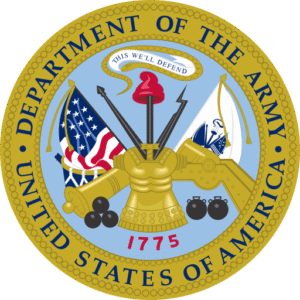
Strengthen Arms-Control and Procurement Transparency
Nigeria should adopt a digital arms-tracking system to log serial numbers and monitor the movement of every weapon.
All major contracts should be published under the Public Procurement Act and subjected to independent auditing. This would close loopholes and prevent the notorious “phantom arms deals” that have drained billions.
Balanced Recruitment and Representation
To heal divisions and foster unity, recruitment must reflect the six geopolitical zones fairly.
A merit-based, regionally balanced system will prevent domination by any ethnic bloc and rebuild the Army’s image as a national, not sectional, institution.
Expand Training Partnerships
Britain’s ongoing Operation ORBITAL and BMATT initiatives have provided valuable training in modern warfare, logistics and human-rights compliance in Nigeria.
Nigeria should expand this collaboration — and invite structured cooperation from other friendly nations such as Canada, India, and South Africa — while maintaining full command autonomy.
Joint training should prioritise:
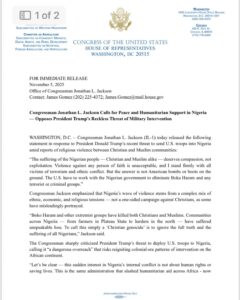
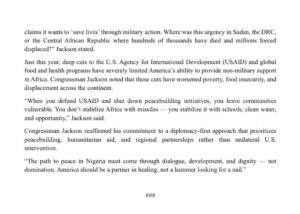
Counter-insurgency and intelligence analysis.
Cyber and drone warfare.
Logistics transparency and field ethics.
Develop a Domestic Defence Industry
Revitalising the Defence Industries Corporation of Nigeria (DICON) would reduce reliance on imports and foreign donors.
Local manufacturing of rifles, ammunition, communication gear, and surveillance drones would strengthen both sovereignty and job creation.
Comparative Outlook: Balancing Superpower Interests
United States, China & Russia’s Approach to Nigeria.
Focus: Counter-terrorism, governance, energy access Resource extraction, infrastructure, strategic influence, Diversify partnerships and retain autonomy
Incentive Model, Conditional aid, military support Investment and low-conditional financing Seek non-aligned cooperation but enforce transparency.
Risk to Nigeria: Political coercion and dependency. Debt exposure and loss of control . Must balance sovereignty with accountability
Nigeria’s current strategy of “multi-alignment” can succeed only if supported by strong institutions and credible governance. Otherwise, it risks being exploited from multiple directions.
Diplomatic Recommendations
Re-Engage the U.S. Through Transparency and Dialogue: Nigeria should demonstrate reform progress, request re-evaluation of the Country of Particular Concern (CPC) label, and reframe the narrative around religious and human-rights issues.

Leverage BRICS Without Alienating the West: Nigeria can pursue economic benefits within BRICS while maintaining diplomatic balance — similar to India’s strategy of engaging both Washington and Moscow.
Shift U.S.–Nigeria Relations From Aid to Investment: Encourage American companies to compete in infrastructure, agriculture, and renewable energy — not just arms sales.
Establish a U.S.–Nigeria Accountability Forum: A permanent platform where defence, trade, and human-rights representatives meet quarterly to assess progress and address grievances before they escalate.
Conclusion: Reform, Responsibility, and Renewal
Nigeria stands at a historic inflection point. It can either become a credible global player — a nation that commands respect for its discipline, transparency and strategic balance — or remain a battlefield for competing superpower interests.
The United States must recognise Nigeria’s sovereignty, and Nigeria must prove it can wield that sovereignty responsibly. Military reform, anti-corruption enforcement, and inclusive recruitment are not optional — they are existential.
If Nigeria restores the integrity of its Army and tightens its governance, and if Washington replaces threats with strategic partnership, both countries can rebuild trust and unlock a new era of collaboration.
When corruption is defeated and professionalism restored, Nigeria will not only protect itself — it will stand as the anchor of African stability, and as a partner the United States can once again rely upon.

Princess Gloria Adebajo-Fraser MFR.
The National Patriots Movement

